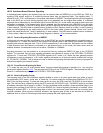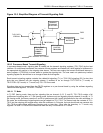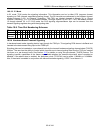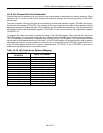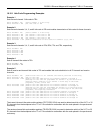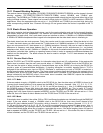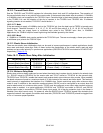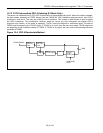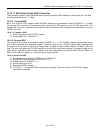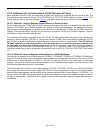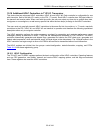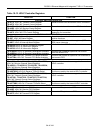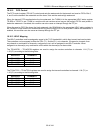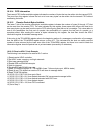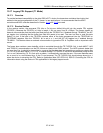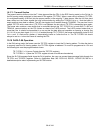
DS33R11 Ethernet Mapper with Integrated T1/E1/J1 Transceiver
91 of 344
10.14 T1 Bit-Oriented Code (BOC) Controller
The transceiver contains a BOC generator on the transmit side and a BOC detector on the receive side. The BOC
function is available only in T1 mode.
10.14.1 Transmit BOC
Bits 0 to 5 in the TR.TFDL register contain the BOC message to be transmitted. Setting TR.BOCC.0 = 1 causes
the transmit BOC controller to immediately begin inserting the BOC sequence into the FDL bit position. The
transmit BOC controller automatically provides the abort sequence. BOC messages are transmitted as long as
TR.BOCC.0 is set.
10.14.1.1 Transmit a BOC
1) Write 6-bit code into the TR.TFDL register.
2) Set the SBOC bit in TR.BOCC = 1.
10.14.2 Receive BOC
The receive BOC function is enabled by setting TR.BOCC.4 = 1. The TR.RFDL register now operates as the
receive BOC message and information register. The lower six bits of the TR.RFDL register (BOC message bits)
are preset to all 1s. When the BOC bits change state, the BOC change-of-state indicator, TR.SR8.0, alerts the
host. The host then reads the TR.RFDL register to get the BOC status and message. A change-of-state occurs
when either a new BOC code has been present for a time determined by the receive BOC filter bits RBF0 and
RBF1 in the TR.BOCC register, or a nonvalid code is being received.
10.14.2.1 Receive a BOC
1) Set integration time through TR.BOCC.1 and TR.BOCC.2.
2) Enable the receive BOC function (TR.BOCC.4 = 1).
3) Enable interrupt (TR.IMR8.0 = 1).
4) Wait for interrupt to occur.
5) Read the TR.RFDL register.
6) If TR.SR2.7 = 1, then a valid BOC message was received. The lower six bits of the TR.RFDL register
comprise the message.



